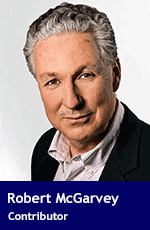 This electoral season in Canada has exposed a shocking truth: We don’t really know what a democracy is.
This electoral season in Canada has exposed a shocking truth: We don’t really know what a democracy is.
The Canadian Press is no help. It has focused on, and become obsessed with, individual party leaders’ popularity as though they were covering a horse race.
Behind the scenes a general malaise has settled over the political landscape, leaving a far more important question unanswered in the general rush to power: What’s wrong with our democracy?
Democracy is in our ancient institutions. Ask what they mean, and they’ll tell you that voting once every four or five years is what the public does to exert its democratic will. The rest of the time, elected politicians exercise power in our name.
Those perceptions are inadequate to describe the complex beast that is modern democracy.
Some scholars – A.C. Grayling prominent among them – contend we’re not a democracy at all. They believe that a democracy means power to the people. In a proper democracy, all citizens are equally empowered and participate directly in the creation of laws. By this definition, democracy is an ideal, impractical in the large-scale complex societies we have today.
Instead, these scholars tell us that we have a representative form of government. The public elects representatives to make laws in their name. It may seem like hair-splitting but they have a point. The citizen in a representative democracy is – at least – one step removed from the laws that govern them.
So, let’s accept we have a representative form of government in Canada.
Or do we? Technically, in Canada, the Queen in England is sovereign, not the public. We may believe we’re a representative democracy, but formally the Government of Canada rules in her name, not ours.
OK, I can hear the critics moan, this is an ancient myth and the Queen is just a symbol. She doesn’t vote and Prime Minister Stephen Harper is not looking over his shoulder wondering if the Queen approves of his legislative agenda.
The fact remains, however, that in the Parliamentary System, monarchs still have important constitutional authority. So, it seems citizens in Canada are only informally sovereign, and, as such, another giant step removed from the laws that are made in their name.
This monarchial sleight of hand is one of the reasons democrats used to admire the United States so much. Unlike the rest of the English-speaking world, the U.S. is an unabashed republic with a constitution explicitly defining the public as sovereign. In other words, it is a representative democracy without qualification.
Or is it?
It is possible to make the case that a sovereign public in the United States is also a myth. In Washington, D.C., alone there are more than 11,000 corporate lobbyists spending more than US$3.24 billion (annually) to influence U.S. legislation. As a result, governments at all levels in the U.S. represent the interests of corporations well ahead of the publics.
In Canada, many of the same forces are at work. The National Rifle Association and the U.S. gun industry, for example, lobbied hard and successfully to eliminate Canada’s long-gun registry. They succeeded, even though the gun-registry was hugely popular with the public and supported strongly by the Canadian Association of Police Chiefs.
Throughout the entire Western world the idea of a ‘sovereign’ public is being eroded. Through our own complacency, or because the power of money simply overwhelms constitutional principle, the public is becoming further and further removed from the laws that govern their lives.
Ask yourself whether your member of Parliament truly represents the interests of your constituency?
They don’t. Whatever their political stripe, they’re neutered, disciplined by whips to vote the party line. But MPs are not alone in their feebleness. The Harper government’s assault on the Supreme Court, the Senate and other independent governing institutions is evidence of the powerful forces bent on undermining what’s left of our formal and informal checks on executive power.
Canadians are rapidly descending into a form of elective autocracy. Governments today increasingly represent the interests of powerful corporations – the true sovereigns in Canada.
Robert McGarvey is an economic historian and former managing director of Merlin Consulting, a London, U.K.-based consulting firm. Robert’s most recent book is Futuromics: A Guide to Thriving in Capitalism’s Third Wave.
Robert is a Troy Media contributor. Why aren’t you?
The views, opinions and positions expressed by columnists and contributors are the author’s alone. They do not inherently or expressly reflect the views, opinions and/or positions of our publication.


